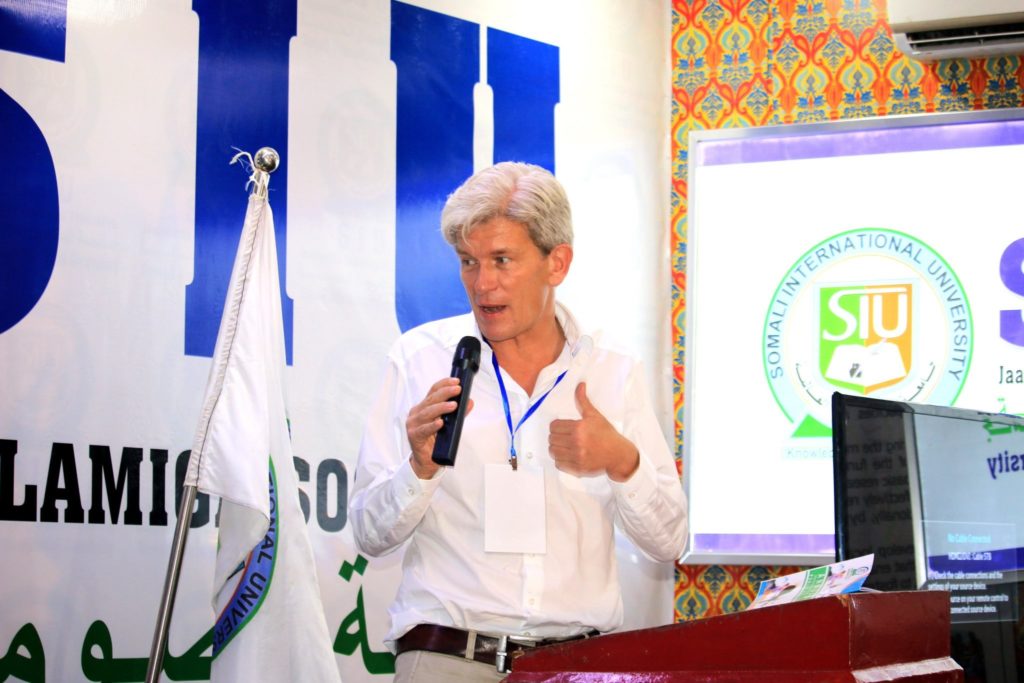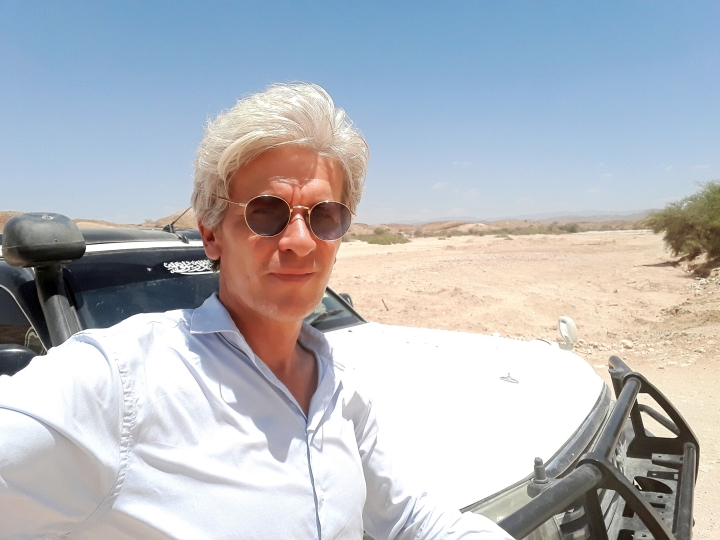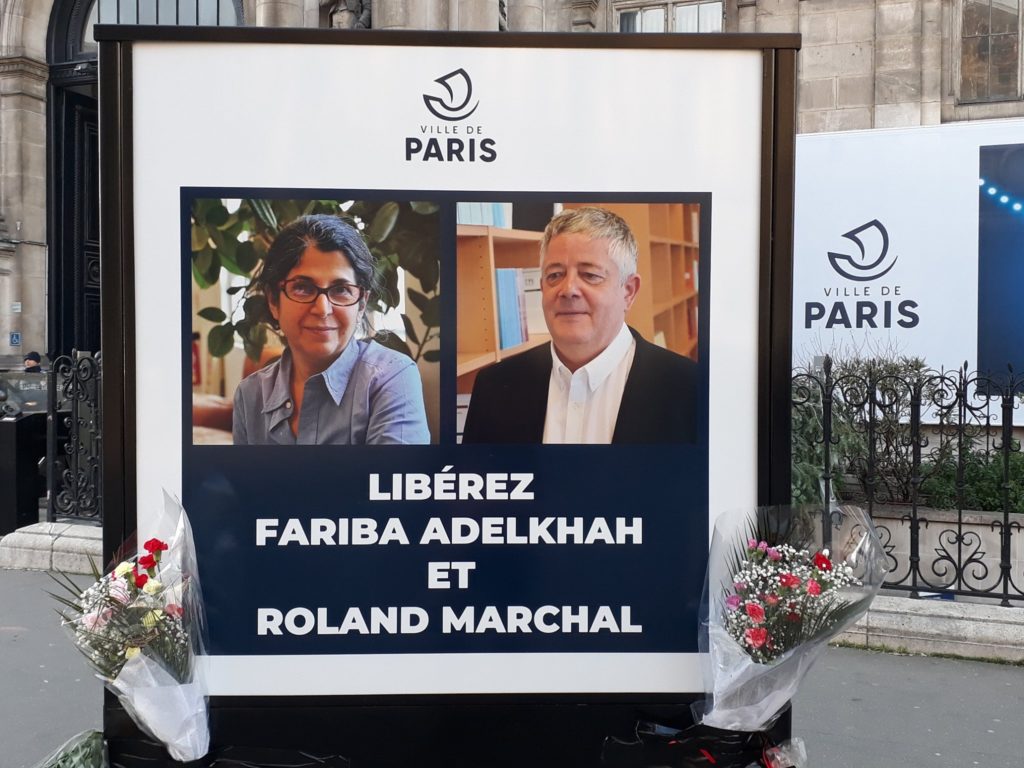This is a synthesis of my presentation on Wednesday 15 January to fellow doctoral students at the Centre de Recherches Internationales (CERI)/Sciences Po Paris.
Recently Sciences Po University announced it will impose restrictions on the travels of all doctoral students outside France. Students will need to obtain a ‘Mission Order’ which will probably be a mere formality for travels within Europe but will present difficulties when going to conflict areas. In general, the advice of the French Ministry of Foreign Affairs will be followed. I presented my own research activities in Somalia to a group of doctoral researchers of the CERI and we then discussed the impact these and other legal compliance measures might have on academic research activities.
Background on my research activities in Somalia
I enrolled in the PhD program at Sciences Po with as research subject the impact of international state-building interventions in Somalia in 2016, at the same time as I started a full-time job as head of research and analysis at an NGO working in Somalia. The job allowed me to develop a deep understanding of Somalia (and Somaliland, where I was stationed) and to build a network of Somali contacts; but I didn’t find time to do much research. After letting my first two precious years of PhD time slip through my hands I resigned. I was living with my family in Ethiopia and had to find ways to return to Somalia to accomplish my field research.
It was not hard to return to Hargeisa, the capital of Somaliland, as I had built excellent contacts there. But it was difficult to get to Mogadishu, as normally, foreigners only go there for short-term assignments or jobs; and then they stay in the heavily fortified Mogadishu International Airport (MIA) and adjacent hotels. These are places where ordinary Somalis cannot come, or do not wish to come due to the humiliation of frequent body searches and rough treatment by security personnel.
To circumvent this obstacle, I sought a position as a guest lecturer at a university in Mogadishu. After intercession by friends, the Somali International University invited me to spend two weeks at their campus in Hodan, downtown Mogadishu. I would give a couple of guest lectures and have meetings with faculty to develop a research program. In exchange, the University would take care of my accommodation, local travel and security, and help me organize meetings.

Now Mogadishu is often seen as the most dangerous city on earth (I believe that is exaggerated) and as a former NGO analyst in Somalia I knew that what I was about to do had probably not been attempted by any white foreigner in many years, even decades. So I double checked on many of the security issues with several of my old contacts in Mogadishu. Was I a target for Al Shabaab? No, the militant outfit had other priorities, was the clear reply. I assumed that my contacts had checked directly with Al Shabaab, otherwise they would not have been so sure. I preferred the insurgents to know about my presence, as they would find out anyhow. As to criminal groups, the University’s security arrangements should be sufficient to dissuade them. My contacts checked out the campus grounds and spoke to the vice-rector, and then sent me the green light.
Research results
My presence outside the fortified airport area was an enormous boon to my research. I wanted to hear how people living in areas governed by Al Shabaab experienced their rule, and to clarify their governance mechanisms. I also desired to hear many different voices on the current state of affairs in Somalia, not only the sycophants that surround the internationals in the MIA, being paid quite handsome salaries to be ‘yes-men’ and implement international plans or pretend to do so. I visited senior civil servants, professors, a judge, powerful businessmen, members of parliament, civil society activists and independent researchers in places they had suggested. This was so unusual that my mere presence seemed to loosen them up. I also had the benefit of the conversations with my students. I saw many different parts of Mogadishu, and while I could never be anywhere very relaxed (the Somalis accompanying me remained on edge, and I was also attentive) I experienced some of the pleasures of life in Mogadishu, a city (incorrectly) known only for bomb attacks, poverty and desolation.
I doubt any foreign organization would ever have allowed me to spend two weeks in the Somali capital outside of its Green Zone; but I felt safe with the measures the university had taken as well as my own precautions. I knew from about two decades working in conflict zones that I was quite safe.
One of my contacts told me that one of the founders of Al Shabaab was living discretely in Burao, a city in Somaliland, and suggested I go visit him. I didn’t have any trouble getting to Hargeisa, but to leave the capital of that unrecognized country, you must recruit a security guard (preferably two) to travel with you. Not that it is dangerous (Somaliland is possibly one of the safest places in the Horn of Africa) but this is a measure the UN agreed on for all foreigners coming to the country, and it generates revenue for the country’s hard-strapped police. I have never objected to this rule, but now, given whom I wanted to meet, I wanted to avoid bringing policemen with me.
The drive from Hargeisa to Burao takes about four hours and there are about twelve checkpoints along the way. Having driven it often before, I knew the most challenging checkpoint is at the exit from Hargeisa. A friend of mine lent me his Landcruiser and suggested I try to make it to Burao by myself. He could make this gesture because I speak some Somali and can find my way around the country. He suggested, jokingly, that when I face any trouble at checkpoints, I should claim I belong to the local sub-clan. He verified that I know the names of the few sub-clans along the road and where they live.
With dread in my heart I approached the checkpoint about 15 km outside Hargeisa, which marks the area where obligatory security detail is needed for foreigners. I was pulled over immediately, told to get out of the car and wait until the checkpoint director could admonish me for not having my official escort. Failure seemed a certainty, so when he finally came out with a rough demeanor, looking ready to teach this stupid foreigner a lesson, I blurted out: “I am of the Mohammed Issa (sub-clan), and this here is my pasture, so let me pass!”. He looked at me incredulously and then erupted in a thunderous laugh; and then waved to his guards to let me through.

I managed to get to Burao undisturbed, joking or bluffing my way through each checkpoint, where they were surprised to see a white man driving his own car and speaking to them in Somali. I took hitchhikers along the road, to make my car look more normal and provide some moral support when I crossed checkpoints.
In Burao I met my contact who was at the origins of the movement that later became Al Shabaab and, with him too, I managed to develop a good rapport, so that we ended up even having dinner together and I heard his story extensively. As a former Guantánamo Bay inmate he was very careful with what he was telling me – I must have looked like one of his American interrogators – and he wanted to prove that he was a non-violent civil society activist that simply cared deeply for the Somali nation, not a ‘terrorist’. Through my local friends I knew that he had checked up on me with them before agreeing to meet me. He didn’t want to speak at all about Al Shabaab and their governance systems, or how these had developed throughout the years, and what their initial approach had been. It is possible that after being picked up by security officials in Djibouti airport and then rendered to the Americans who brought him to Guantánamo Bay, where he spent two years, he cut all relations with Al Shabaab. If he still had such links, he would be careful to hide them to me.
In that sense my meeting did not deliver the desired ‘results’ of hearing about the origins of Al Shabaab as an organisation and their public policies. But it confirmed my intuition that thinking of Al Shabaab as an organisation and their policies was probably imposing an external framework of analysis on what was most likely a loose network of ‘brothers’ bound by a common ethical outlook and desire to change their society, starting with their own behaviour. In that sense the transition to civil society activist was completely natural, not some kind of alibi as Western ‘terrorism experts’ might suspect. This unspectacular meeting, in short, revealed exactly the kind of truth that is concealed by the barriers separating the Western academic from his terrain.
See Faisal Devji ‘Landscapes of the Jihad’ (2005) and Darryl Li ‘The Universal Enemy’ (2019) for useful analyses of Western misconceptions of the figure of the ‘Jihadist’.
Analysis of the researcher’s security in civil conflict zones
The other doctoral students in the meetings, some of whom are engaged in other conflict areas in e.g. Burkina Faso and Colombia, agreed that building trust with the researched community is essential, and not so difficult in general – learning a few words of their language, showing respect for their culture, demonstrating political neutrality and simply being friendly and not too suspicious (without letting down one’s guard) can be sufficient to open many doors. However, complications arise when there is conflict within the researched community – and that is often the case where political scientists go. Each side in the conflict will try to monopolize your attention to get their narrative through. We Western researchers may think we are independent, modest and unprejudiced, but we are often seen as emissaries of our countries, who need to return home with the correct message for our governments.
We discussed how you avoid being seen as partial; that is not only a problem for your research, but also poses a possible security threat. The mere fact that you are talking with one set of people may put off another set of people whose opinions you also need to hear. We agreed that a researcher always needs several points of contact to her/his field, and these contacts must belong to different networks. If possible, it is better to prepare these local contact points before your arrival; once you are in the field you should visit them all as soon as possible. When possible I visit the opposing sides of a conflict (sometimes there are more than two) on the first day of my stay. Fortunately, academic researchers generally know much about the history, culture and specifics of their terrain, making us quite able judges that avoid basic mistakes that could compromise our security as well as our research.
There are other security threats. The worst are kidnapping and hostage taking (the difference between the two is that kidnapping is criminal and usually done for a ransom, while hostage taking has political objectives in mind). But, although much of our attention focuses on these, they are quite unlikely events. Much more frequent is being the victim of criminality, and women researchers are particularly vulnerable to sexual crimes (or intolerable harassment) in some areas. It can be useful to be accompanied by a locally respected male, for example an elder, to avoid that. Altogether, integration is the best solution to decrease risk, but it must be done intelligently, with contacts in the different networks engaged in the conflict. Placing yourself under a strongman’s protection functions in areas where this person’s authority is uncontested but can become a liability in contested areas. A researcher should also realize his own power as a foreigner, often protected by an institutional aura, and can bargain his or her way into local arrangements, to not appear helpless.
Clearly there is no standard prescription to increase the researcher’s safety; but just about all students present seemed to agree that measures that bar access to the terrain or make it heavily conditional on following cumbersome security guidelines work counterproductively. The measures Sciences Po is taking have little to do with security, and all to do with risk management; risk management in turn boils down to responsibility (or liability) management, for the institution. These measures may appear to be designed to protect academic researchers from harm; but in fact they are wholly geared toward minimizing potential liability of the institution. This phenomenon is extending rapidly throughout our modern societies: Michael Power poignantly argues that “the risk management of everything [is] one of the major public policy challenges of the early twenty-first century” (‘The Risk Management of Everything’, Demos, 2004, p. 10) as it actually deflects organizational liability onto the individual, and increasingly curtails our liberty as citizens, consumers and travelers, forcing us to comply with measures which are taken for the protection of institutions, not our own.
Another issue raised by those present at the meeting was the project to introduce mandatory ‘informed consent’ forms to be signed by those we interview or otherwise plan to include in our research. This is already common practice in the USA. Again, there is a gap between the ostensible purpose (which is to avoid the researcher abusing the research participant) and the real objective: to avoid any claim by research participants on the institution backing the research. Besides being a burdensome procedure, doctoral researchers noted that asking often illiterate people to sign a document generates suspicion. The actual consequence of such a measure may be that the researcher ends up filling in the forms by himself, faking signatures, or abandons the research altogether.
For academic researchers this is a dangerous development, as access to terrains seen as risky by the Ministry of Foreign Affairs will become almost impossible. My research activities in Somalia described above will become unthinkable. I argued that we should be prepared to work outside the rules, if that enhances the quality of our research; but other students pointed out that non-compliance could not only be damaging for one’s own career prospects, but also for the research director or the institute with which we are affiliated.
Our own institute, the Centre de Recherches Internationales (CERI), currently stands in the spotlight. Two of its prominent researchers are currently being held hostage by the Iranian government: Fariba Adelkhah and Roland Marchal were both arrested, on unclear charges, in June 2019. The circumstances of their arrest seem to point out that real security threats have little to do with the case, as neither was specifically critic of the Iranian government, Tehran is generally a safe environment, and Roland Marchal doesn’t even research Iran (he was just visiting). Roland, whom I badly miss as co-director of my thesis, has spent a lifetime in conflict areas in East and Central Africa taking risks required for his research but never facing any major trouble (as far as I am aware). They are victims of the geopolitical conflict between Iran and the USA, and the wavering position of the European Union and France. Closing the access of all conflict zones to academic researchers to protect the University’s liability, but emotionally referring to the imprisonment of our two colleagues, not only seems entirely disproportionate but also unfair to their legacy as researchers.

We hope to continue this discussion and find a solution that takes into account both the university’s possible liability and the need for researchers to have unfettered access to their terrain, within limits of safety that they are well positioned to judge for themselves. We should not forget that risk management does not ensure safety, and for the researchers still out there, in the terrain, we suggest that they continue taking care of themselves, instead of relying on compliance to risk management procedures.
